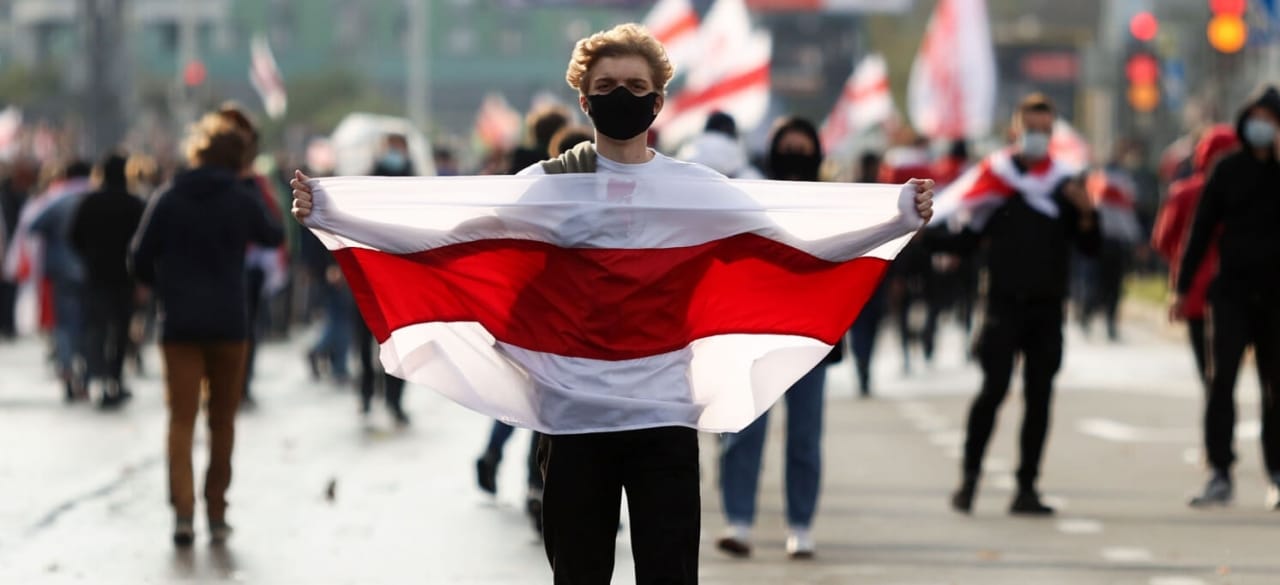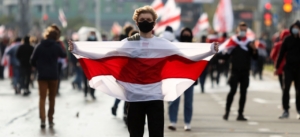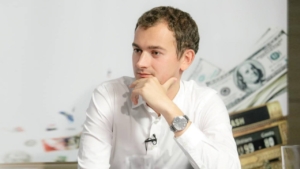
‘Lukashenko is delaying any resolution of the crisis’ — an interview with Belarus expert Artyom Shraibman

To mark the anniversary of the start of the Belarusian protests, The Bell spoke to Belarusian political analyst Artyom Shraibman (who recently fled the country due to threats) about why protests failed, the role of Russia and what awaits:
Q: How could the situation in Belarus develop?
A: There are many scenarios, and they are equally plausible. Lukashenko is delaying any resolution of the crisis. Clearly, he will not make any concession to the protests. But he is also postponing a resolution to the crisis through constitutional reform and a controlled transition — and that is striking. The longer this goes on, the greater the chance that changes will come not in a controlled way, but spontaneously.
There are many reasons for Lukashenko to procrastinate and not make any big decisions: it’s not clear how he can control his successor, sanctions are not a moment to step away, and, in general, the current constitution works to his advantage. So far, these outweigh any incentive to quit. But the longer he postpones, the more likely we are to fall into another cycle of violence and escalation. If this happens, a crisis could emerge very unexpectedly, we just don’t know when it might happen.
There is also a base case scenario in which Lukashenko ultimately manages to avoid making mistakes and carries out a controlled handover of power. But it is hard to say how long this might take — one year, maybe four or five. He has promised not to contest the next elections. And, it seems to me, it would indeed be difficult for him to contest new presidential elections — in Moscow’s eyes, in the eyes of his own nomenklatura and especially in the eyes of the Belarusian public.

Q: Do you remember your feelings from a year ago? Did you feel that Lukashenko would be able to survive?
A: This year has seen so many emotional roller coasters that it’s difficult to remember. Before August 9 [the day of the presidential election — The Bell], there was a feeling the storm clouds were gathering and everything was building to a very serious confrontation — and that’s more or less what happened. There was anxiety in the air. Then the internet was disconnected, there was widespread violence — it came as a shock. Crowds were dispersed, people were beaten, rubber bullets were fired at the windows next to my house. At night you could hear the stun grenades.
For the next two weeks, there was a sense of triumph. It seemed the protests were about to succeed. Right after the election, on August 12, in the wake of terrible police violence, I wrote a piece on the Carnegie website in which I predicted the course of events [the article read: “if the protests fizzle out under pressure from the security forces — and this looks a likely scenario today — the authorities are unlikely to refrain from a show of force”]. For the next couple of weeks, I was thinking: ‘Damn, how did I get it so wrong?’. But then everything started moving back in line with my prognosis. I think everyone went through the same emotional process.
Q: When did it become clear the revolution was not going to succeed?
A: I don’t think there was a single moment. It was an evolutionary process: gradually the rallies in the regions became less frequent, then we saw fewer people coming out in the capital. And, quietly, repressions began. By the end of August 2020 it was already apparent the authorities weren’t ready to give up and go peacefully, that the confrontation would either be very long, or very violent.
The moment when it became obvious that society was not prepared to radicalize in response to the violence was the death of Roman Bondarenko in November 2020 [Bondarenko was a 31-year-old Minsk resident who was beaten up by plainclothes security service officers when he tried to protect protest symbols outside his home. He later died in hospital — The Bell]. Even after that, the protests did not reach a significantly new level, neither in scale nor in radicalism.
Q: Is it only journalists and activists who currently face repression?
A: Even random people with no interest in politics face repression. That’s how it was from the very start when everyone was lumped in with the protests. For example, after running into a café where some opposition supporters were sitting, riot police simply arrested everyone. That continued until the spring of 2021 when the last protests took place… Everyone vaguely resembling an organized group was arrested. For example, in March they arrested a group on a guided tour. The guide was given 15 days in prison. This happens all the time.
Q: What would Lukashenko have done without Russia’s support?
A; If we’re talking about political support and economic support then, without it, Lukashenko would have found himself in a very difficult position. Potentially, he could have fallen from power. He would have kept fighting, but he would have been forced to make concessions to the EU and loosen the screws. He could not have crushed the protests so quickly and, sooner or later, that would have led to such political destabilization that he would have lost control of the levers of power and been forced to step down.




